With a pen awkwardly gripped in my non-dominant hand, I time-travel back to 1960. I don’t want to go.
The hyypnotherapist instructed me to communicate with my child self. I’m on a quest for lost memories of Professor Agnes Jackson, my college mentor, but those memories lie hidden on the far side of childhood terrors. The therapist assigned me writing prompts, for my dominant hand. Told me to switch hands to respond.
Confronted by the rage she’d splattered all over a previous incarnation of our journaling experiment, I do not want to talk to the little girl.
She gives me a headache, and by headache I mean one single vice grip of the skull that lasts for all the weeks I try but fail to avoid her. There she is in the mirror, clad in Mickey Mouse pajamas all day long. Or tee shirt and flouncy orange skirt, a replica of the skirt I wore to shreds when I was four. She co-opts my diet: gobbling ice cream, hot dogs, and QuikTrip fruit cups that are nothing more than the canned fruit cocktail of my kid-hood.
As instructed, I write the prompt with my right hand: What do you want me to know?
Initially, My left-handed penmanship is illegible. I’m mystified how the skill level improves dramatically after half a dozen lines. As the pen travels down the sheet of copy paper on my desk, the handwriting becomes exactly mine from fourth grade, 1960, when I learned cursive. I’m mystified that my left hand, which produced only a scrawl at the top of the page, by the bottom is writing complete sentences. There is communication here, that I don’t quite belive in. So I continue pushing the pen laboriously across and down the page. I tire easily from the effort and the too tight grip of my arthritic hand. I want to stop. Should we stop, I ask my ten-year-old self. “Not yet,” she answers. And then “Maybe.”
The time machine pauses. I wait.
I watch my hand cross the page. The effort is labored, but steady. Halfway through her final lines, I know what she’s about to say. Because my mind outpaces my hand, the sentences appear on the screen of my brain before they appear on the page. I misinterpret the lag as free will. I foolishly think I control the process. I consider stopping. Just stop your hand. It’s easy. The writing stops, by the will of who knows what.
I lay the pen down. Analysis drains away. Anxious energy settles with a soft shhh. The final enigmatic words on the page comfort me as I’ve never been comforted, as the little girl has never been comforted.
“It’s a game,” she says in my fourth grade cursive. “Don’t worry. You can’t lose. Not this time around.”
Later, after I’ve regained elder consciousness, doubts will reclaim their territory. Will this exercise lead me to the memories I seek? I will wonder how a child can sound like a wise elder. I will wonder which of us is the elder, which the child. I will wonder whether time travel has taken me to the past or whisked me into the future, when I’m as wise as a child.
The hyypnotherapist instructed me to communicate with my child self. I’m on a quest for lost memories of Professor Agnes Jackson, my college mentor, but those memories lie hidden on the far side of childhood terrors. The therapist assigned me writing prompts, for my dominant hand. Told me to switch hands to respond.
Confronted by the rage she’d splattered all over a previous incarnation of our journaling experiment, I do not want to talk to the little girl.
She gives me a headache, and by headache I mean one single vice grip of the skull that lasts for all the weeks I try but fail to avoid her. There she is in the mirror, clad in Mickey Mouse pajamas all day long. Or tee shirt and flouncy orange skirt, a replica of the skirt I wore to shreds when I was four. She co-opts my diet: gobbling ice cream, hot dogs, and QuikTrip fruit cups that are nothing more than the canned fruit cocktail of my kid-hood.
As instructed, I write the prompt with my right hand: What do you want me to know?
Initially, My left-handed penmanship is illegible. I’m mystified how the skill level improves dramatically after half a dozen lines. As the pen travels down the sheet of copy paper on my desk, the handwriting becomes exactly mine from fourth grade, 1960, when I learned cursive. I’m mystified that my left hand, which produced only a scrawl at the top of the page, by the bottom is writing complete sentences. There is communication here, that I don’t quite belive in. So I continue pushing the pen laboriously across and down the page. I tire easily from the effort and the too tight grip of my arthritic hand. I want to stop. Should we stop, I ask my ten-year-old self. “Not yet,” she answers. And then “Maybe.”
The time machine pauses. I wait.
I watch my hand cross the page. The effort is labored, but steady. Halfway through her final lines, I know what she’s about to say. Because my mind outpaces my hand, the sentences appear on the screen of my brain before they appear on the page. I misinterpret the lag as free will. I foolishly think I control the process. I consider stopping. Just stop your hand. It’s easy. The writing stops, by the will of who knows what.
I lay the pen down. Analysis drains away. Anxious energy settles with a soft shhh. The final enigmatic words on the page comfort me as I’ve never been comforted, as the little girl has never been comforted.
“It’s a game,” she says in my fourth grade cursive. “Don’t worry. You can’t lose. Not this time around.”
Later, after I’ve regained elder consciousness, doubts will reclaim their territory. Will this exercise lead me to the memories I seek? I will wonder how a child can sound like a wise elder. I will wonder which of us is the elder, which the child. I will wonder whether time travel has taken me to the past or whisked me into the future, when I’m as wise as a child.
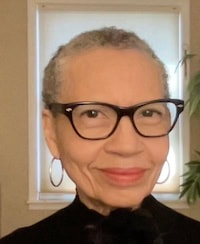

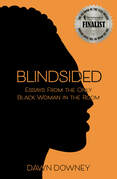
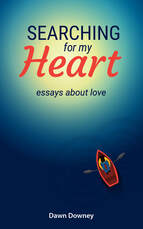
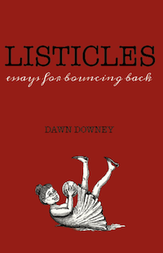
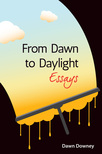

 RSS Feed
RSS Feed